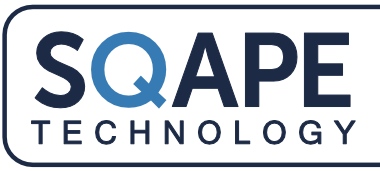SQAPE in practice
Patent for all
Grass elements and cycle paths
The infrastructure is expanding all the time. The question is not only how and when the existing bridges and viaducts should be replaced, but also when the construction of new infrastructure in a sustainable manner will actually get underway. Why wait until the year 2030?
Governments can already opt for extremely sustainable road surfacing, with up to 80% reduction in CO2 emissions. Launching customers have already realised various projects in practice. Those who produce road surfacing with the SQAPE technology will not only make a good impression on sustainable purchasers, but also outside in the built environment. The products have a familiar appearance and, on top of that, their qualities are superior.
The construction of, for example, roundabouts or floors does not deviate from existing working methods. Contractors in the concrete sector can quickly make the switch without any major investments. The following projects have successfully put the SQAPE technology into practice.
Grass elements, Northwest Overijssel
| Description | Grass elements, Northwest Overijssel |
|---|---|
| Supplier | v.d. Bosch Beton |
| Client | Province of Overijssel |
| Location | N331 |
| Application | grass element |
| Project | major maintenance and reconstruction of the parallel road along the N331 between Zwartsluis-Vollehove |
| Implementation | Of the total length of 3.2 kilometres, 500 metres have been executed with Reduton®. |
The Almelo family company v.d. Bosch Beton is known in the market as a modern company that constantly innovates in the use of raw materials. It was therefore a logical step to be the first on the Dutch market to make a product based on the innovative SQAPE technology in collaboration with SQAPE.
In a conventional concrete factory, the Almelo company produced a cementless grass element that meets all the required standards and delivers the right performance. In addition, this grass element has a much better environmental performance than regular cement-bound grass tiles from v.d. Bosch Beton. The sustainable concrete of v.d. Bosch Beton, Reduton®, is characterised by an extremely low CO2 footprint.
The province of Overijssel had the scoop. Primarily to achieve sustainability gains, the province was the first to apply the sustainable grass element in the reconstruction project N331.
Added value
A grass element with a low carbon footprint, low EIP score while maintaining product properties (strength).
Cycle path, Zeewolde
| Description | Cycle path Zeewolde |
|---|---|
| Supplier | Cementbouw Betonmortel, Cruquius |
| Client | Municipality of Zeewolde |
| Location | Gelderseweg |
| Application | road surfacing, cycle path |
| Project | renovation of cycle path on Gelderseweg, Zeewolde |
| Implementation | 400 metres is carried out in RAMAC |
Cementbouw has succeeded in replacing the cement in concrete road pavements using SQAPE geopolymer technology. The municipality of Zeewolde is the first to apply RAMAC, Cementbouw's new geopolymer line, in the renovation of the bicycle path on the Gelderseweg.
It was the desire to create sustainable products that stimulated Cementbouw to undertake this product development and innovation. As one of the leading organisations in the sector, Cementbouw sees it as its responsibility to provide sustainable solutions in light of climate change.
André Barendregt, director of Cementbouw Betonmortel: "In Zeewolde we have now produced a road pavement with RAMAC, where we have replaced the cement for 100%. The result is a sustainable bicycle path with an extremely lowCO2 footprint. With our new product, we can make a major contribution to the sustainability goals of our clients."
Added value
By using RAMAC as road surfacing, aCO2 reduction of over 65% has been achieved. The innovation in Zeewolde has been nominated for the InfraTech Innovation Award 2017. Concrete producers who would like to become acquainted with the possibilities of the SQAPE technology, in a technical and/or commercial sense, can contact us.
2RAMAC is the brand name under which SQAPE itself markets products bound with SQAPE polymers.

